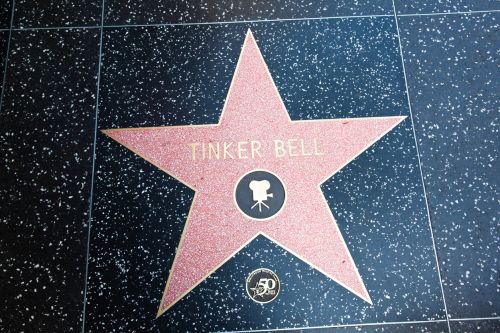Disney is no stranger to intellectual property issues and trademark infringement lawsuits. The company recently prevailed in a decade-long trademark dispute, halting United Trademark Holdings Inc. from registering trademarks for its “Teen Tink” and “Teen Tinker Bell” dolls. In a 14-page decision, the Federal Circuit agreed with the Trademark Trial and Appeal Board (TTAB), holding that if the trademarks were granted, consumers would likely be confused — and associate them with Disney’s version of the character.
What Was the Teen Tink Trademark Dispute?
Although Disney is perhaps most well-known for its depiction of Tinker Bell, the character first appeared in J.M. Barrie’s 1911 novel Peter Pan and is now in the public domain under trademark law. However, Disney holds a registration for “Tinker Bell” as a standard character mark for a various assortment of goods, including dolls and toys. Disney has used the trademark “Tinker Bell” in connection with its dolls since 1994, along with “Tink” since 2007.
United launched what it referred to as its “Fairy Tale High” collection of dolls in 2013 which included public domain fairy tale characters such as Snow White, Little Mermaid, Cinderella, and Tinker Bell as teenagers. The company added features to the dolls to alter their traditional presentation, including colored hair streaks, accessories, and makeup.
United argued that it created a new version of Tinker Bell, similar to what Disney did many years ago. But after United attempted to register the marks “Teen Tink” and “Teen Tinker Bell” in connection with its dolls, Disney opposed the applications pursuant to the Lanham Act on the grounds of priority and the likelihood of confusion.
How Was the Teen Tink Trademark Case Decided?
In considering the inherent and commercial strength of the mark as applied to the dolls, the TTAB held that Disney’s mark was entitled to an “ordinary scope of protection” on the spectrum of “very strong to very weak.” Although Disney isn’t necessarily known for selling dolls, the Board noted that Disney has used the “Tinker Bell” and “Tink” marks in commerce since 1994 and 2007, respectively. It also presumed that the channels of trade and classes of consumers for the goods were the same since the registrations were “identical.”
Further, the TTAB found that both of United’s proposed marks conveyed “similar commercial impressions” to Disney’s mark. Since consumers are accustomed to seeing the mark on Disney’s products — and might purchase these types of goods on impulse — the Board determined that consumers would be likely to think the dolls originated from Disney.
On appeal, the Federal Circuit affirmed the TTAB’s findings. The court reviewed the TTAB’s analysis and held that United failed to demonstrate Disney’s mark would evoke the public domain version of Tinker Bell. In evaluating the multiple factors set forth in the landmark case, In re E.I. DuPont de Nemours & Co., the court also found that United did not establish that there was no likelihood of confusion between its proposed mark and Disney’s registered mark.
Notably, the court remarked that United’s mark only differed from Disney’s in that it included the word “teen” before “Tinker Bell.” Thus, it was reasonable for the TTAB to determine that the two marks were similar in both appearance, sound, and commercial impression. In its reasoning, the court drew a distinction by referencing a trademark proceeding for an application for “Zombie Cinderella.” In that case, the Board found that “Zombie Cinderella” and “Walt Disney’s Cinderella,” left different commercial impressions, which was not the case with adding the word “teen” in front of “Tinker Bell.” The Board also found that since “Cinderella” was used by many throughout the years, it was not a strong source identifier for Disney according to trademark law.
The Federal Circuit held that United recognized that “creative works can be protected as trademarks when they identify the origin of the producer of services or tangible goods.” However, the company was unable to show how Disney’s use of “Tinker Bell” was a “misuse or extension of a trademark.”
Contact an Experienced Trademark Attorney
Trademark matters are complex and extremely nuanced. If you are facing trademark litigation, it is imperative to have an experienced attorney by your side to advocate for your right to register your mark or continue using it in commerce. Located in Ann Arbor, Michigan and serving clients nationwide, the Trademark Lawyer Law Firm, PLLC helps business owners with a wide variety of trademark matters, including trademark litigation. Contact us today to schedule a complimentary 15-minute consultation to learn how we can assist you.





